How much butter is applied to the
wheel bearings is a problem that many card friends want to know. No matter how many or less, the best lubrication and economic benefits will not be achieved. However, what we are talking about today is the relationship between bearing butter and ABS sensor. Too much butter not only affects the best lubrication and wastes, but also causes the failure of the ABS probe.
Although the surface of the ABS sensor probe is almost entirely covered by metal, it is a rather delicate thing when actually used. Due to its position in close proximity to the bearing, it can easily be soiled or even rusted by various dusts and grease in the bearing for a long time. Filling the dirt between the ABS sensor probe and the hub ring gear can affect the magnetic induction detection. Many ABS sensor failure cases are caused by excessive application of bearing grease. Excessive butter can easily be squeezed onto the probe when the wheel is installed. In the light case, the bearing butter is too much to affect the sensitivity of the ABS probe. In the case of heavy bearing grease, the probe can not sense the ring gear and cause the ABS system to malfunction.
Whether it's an axle sensor bracket or a post-weld mounting method, it is very common to apply too much butter. Butter plus dust and metal debris falling from the brake pads are all deposited on the probe surface. The prevention and treatment of this situation is very simple. That is, do not use too much when applying wheel butter to the wheel bearings. When cleaning, just remove the probe from the bracket and clean it thoroughly. Then apply a layer of butter evenly between the probe and the bushing to prevent future rust in the bracket.

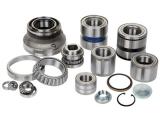 Wheel Bearing
Wheel Bearing is a set of steel balls or rollers held together by a metal ring called a race. They help wheels spin fast with as little friction as possible. View More
Wheel Bearing
Wheel Bearing is a set of steel balls or rollers held together by a metal ring called a race. They help wheels spin fast with as little friction as possible. View More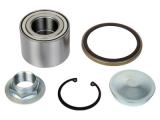 Wheel Bearing Kits
When you need to change the wheel hub bearing,you also need to replace many other parts at the same time,such as hub nut,bolt,seals,split pin,and so on. View More
Wheel Bearing Kits
When you need to change the wheel hub bearing,you also need to replace many other parts at the same time,such as hub nut,bolt,seals,split pin,and so on. View More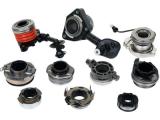 Clutch Release Bearing
Clutch Release Bearing is what presses down on the rotating spring plate or "pressure plate" to release the clutch disk. View More
Clutch Release Bearing
Clutch Release Bearing is what presses down on the rotating spring plate or "pressure plate" to release the clutch disk. View More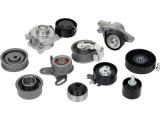 Belt Tensioner
A Drive Belt Tensioner is a pulley mounted to either a spring mechanism or to an adjustable pivot point that is used to keep constant tension on your serpentine belt. View More
Belt Tensioner
A Drive Belt Tensioner is a pulley mounted to either a spring mechanism or to an adjustable pivot point that is used to keep constant tension on your serpentine belt. View More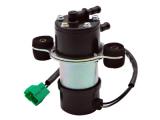 Fuel Pump
AiX provide you with the high quality of electric fuel pump and fuel pump assembly.Fuel pump assembly is one of the vital components of fuel injection system for EFI vehicle. View More
Fuel Pump
AiX provide you with the high quality of electric fuel pump and fuel pump assembly.Fuel pump assembly is one of the vital components of fuel injection system for EFI vehicle. View More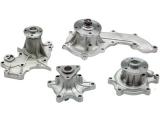 Water Pump
The reliable and effective operation of an automobile engine requires the cooperation of many parts. View More
Water Pump
The reliable and effective operation of an automobile engine requires the cooperation of many parts. View More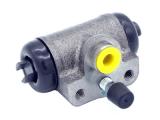 Wheel Brake Cylinder
When you want your car to slow down or stop, you need to take the brake operation. At this point, you need to step down your brake pedal. View More
Wheel Brake Cylinder
When you want your car to slow down or stop, you need to take the brake operation. At this point, you need to step down your brake pedal. View More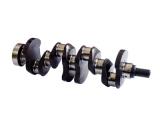 Crankshaft
Crankshaft is also known as crank.It is the important part of an engine to convert the up and down motion of the pistons into horizontal rotation.It is usually made by cast iron or forged steel. View More
Crankshaft
Crankshaft is also known as crank.It is the important part of an engine to convert the up and down motion of the pistons into horizontal rotation.It is usually made by cast iron or forged steel. View More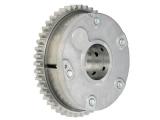 VVT PHASER & OCV
VVT is the abbreviation of Variable Valve Timing. VVT PHASER is the vital component for the VVT engines. View More
VVT PHASER & OCV
VVT is the abbreviation of Variable Valve Timing. VVT PHASER is the vital component for the VVT engines. View More






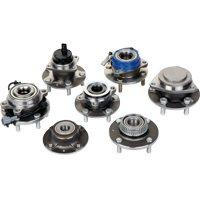

 +86-18758057736
+86-18758057736 
 TEAM 21,XIEJIA VILLAGE, PUYANG TOWN, XIAOSHAN DISTRICT, Hangzhou, Zhejiang Province, China
TEAM 21,XIEJIA VILLAGE, PUYANG TOWN, XIAOSHAN DISTRICT, Hangzhou, Zhejiang Province, China 